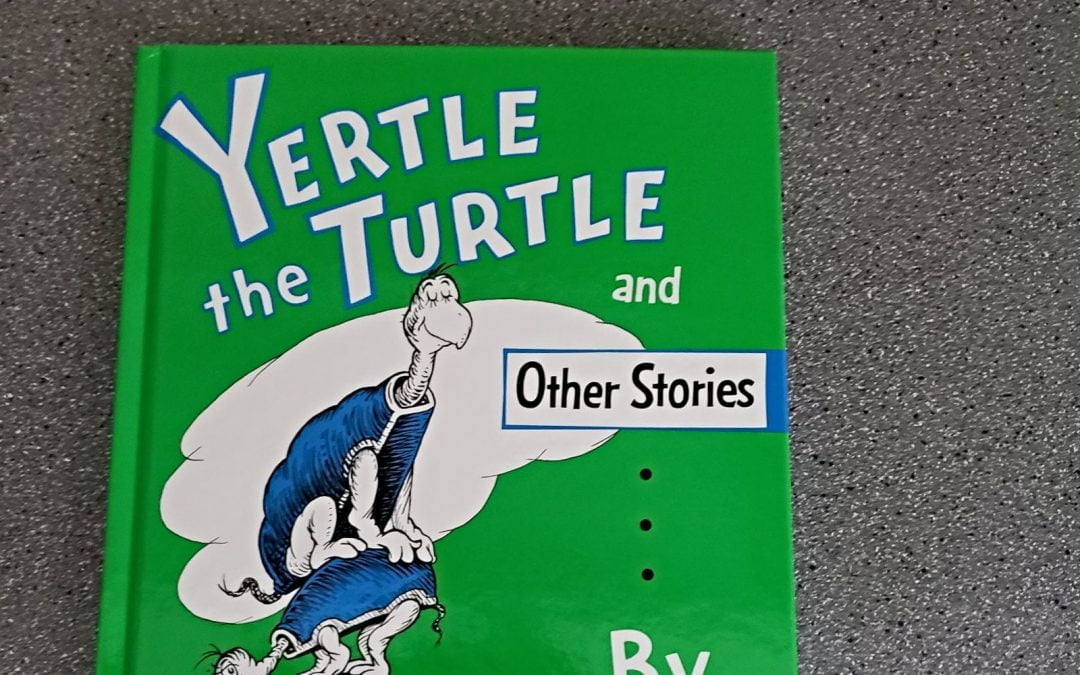Editor’s note: This article first appeared on Aug. 12, 2003. At the time of publication, Vickery was co-pastor of Cullowhee Baptist Church in Cullowhee, North Carolina.
The tortoise and the hare taught us that slow and steady wins the race, but Yertle the Turtle’s lesson runs deeper.
This seemingly innocuous Dr. Seuss story first came to my attention when personally confronted by fundamentalism’s need for power and control.
Unable to speak out publicly against others in authority, one of the wisest and most scholarly people I know sat down with Yertle the Turtle in his lap and read it without comment.
Yertle was the self-proclaimed king of the pond at Sala-ma-Sond. He claimed as his kingdom everything he could see.
As the book opens, he does not rule enough because he does not see enough. To solve this problem, he calls on his turtle subjects to make a turtle stack on the top of which Yertle sits and rules.
With his throne of turtles, Yertle is able to see more and, in his opinion, rules more.
But it is not enough. He needs more turtles and a higher throne – and a higher one – and a higher one still, until he sits above all and rules all.
To Yertle’s dismay, a problem arises. It seems that the little turtle at the bottom of Yertle’s throne, a very common turtle named Mack, raises a critique.
His back hurts, he is afraid his shell might crack, and every new turtle that joins the turtle-stacked throne has to step on Mack’s head.
Mack brings his concerns to Yertle’s attention with the hope that his king will understand.
Yertle, instead, notices that the moon is higher than he is and decides that he needs a few thousand more turtles so that he can rule the moon too.
Just then, at the bottom of the stack, Mack burps and shakes the king’s throne so much that Yertle falls deep into the mud. This is all that Yertle is left to rule.
Those who rule over others, and those who assume that they rule, face great temptations. Those who take on authority and power do so not to build up themselves, but to be responsible for other people.
King Solomon and King Yertle are contrasts in this regard. God offers Solomon anything he desires. We know Solomon chooses wisdom because we teach that part of the story in our churches.
Solomon understood something else as well: He needed wisdom to bring God’s justice to the people, not to be known as wise.
Solomon asked for wisdom to be “able to discern between good and evil; for who can govern this your great people” (1 Kings 3:9).
Many of us have been taught to lead, to take charge or to take responsibility. The relationship between parent and child, teacher and student, pastor and church, employee and employer can be redeeming or destructive.
Majorities in power can oppress those in the minority or work to bring justice and hope to everyone.
Power does not have to corrupt but often does. And it always does when we forget the common turtles at the bottom of the stack.
That is, until they burp and shake our thrones, and we find ourselves back in the mud where we belong.
Jeffrey D. Vickery is co-pastor of Cullowhee Baptist Church in Cullowhee, North Carolina, and a part-time instructor in the Philosophy and Religion Department at Western Carolina University in Cullowhee.


